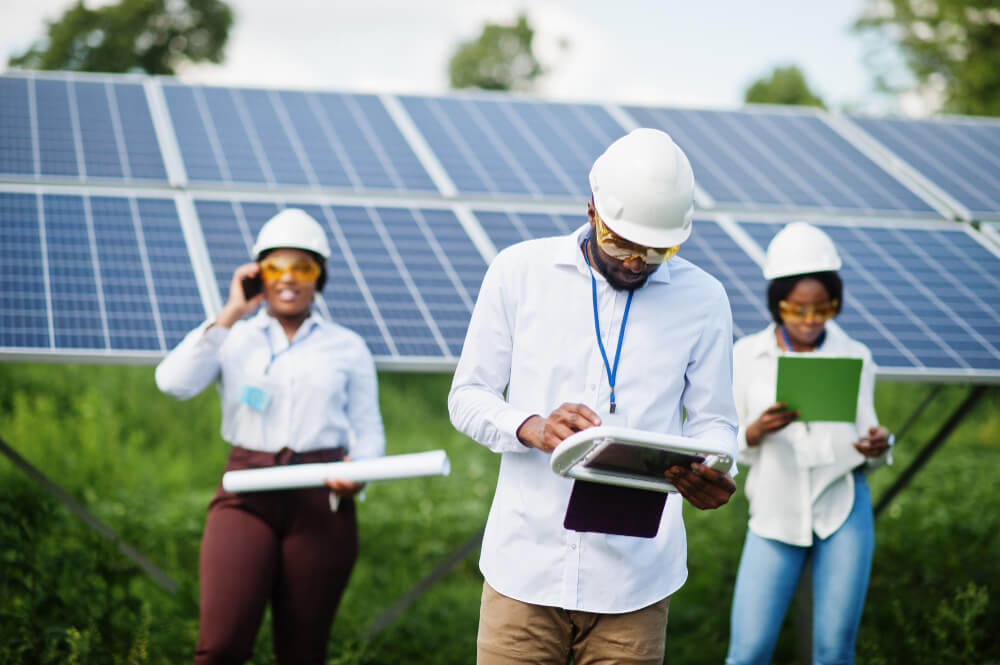Investing in solar energy is an excellent way to reduce electricity costs, contribute to a sustainable environment, and ensure energy reliability. However, selecting the right solar inverter is critical to the efficiency of your solar power system. In this guide, we’ll walk you through the key factors to consider when choosing a solar inverter for your home or business.
What Is a Solar Inverter?
A solar inverter plays a vital role in any solar power system, converting DC energy from solar panels into usable AC power for your home or business. Solar inverters also manage the energy flow between your panels, batteries, and the grid, making them essential for maximizing energy efficiency.
Types of Solar Inverters
Understanding the types of inverters available can help you determine the one that suits your specific needs:
- String Inverters: Ideal for small to medium systems, these are cost-effective and reliable but may not perform well in shaded areas.
- Microinverters: Installed on each solar panel, they are excellent for areas with shading issues and allow panel-level monitoring.
- Hybrid Inverters: Designed for solar-plus-storage systems, they manage power from the grid, solar panels, and batteries.
- Off-Grid Inverters: Perfect for remote areas, they operate independently of the grid and are used in standalone systems.
Key Considerations When Selecting a Solar Inverter
1. Power Rating and Capacity
The inverter should match your solar system’s size and energy needs. For example:
- Small Homes or Offices: Inverters like the Felicity 3.5 KVA 48V Inverter are suitable for modest energy demands.
- Large Homes or Businesses: Inverters such as the Deye 16kW Hybrid Inverter offer higher capacity and efficiency for extensive energy requirements.
2. Efficiency
Opt for inverters with superior conversion efficiency to ensure maximum energy production and reduce power loss. Models like the Deye 8kW Hybrid Solar Inverter boast efficiencies above 95%, making them an excellent choice for optimal energy savings.
3. Compatibility with Solar Batteries
If you plan to include energy storage, select an inverter compatible with lithium or lead-acid batteries. For instance, the Felicity Solar 7.5kVA 48V Powerful Solar Inverter supports advanced battery integration.
4. Durability and Warranty
A high-quality solar inverter should withstand environmental conditions and offer a long warranty period. The Deye Inverter Range, for example, includes IP65-rated models designed for harsh conditions and comes with extended warranties.
5. Smart Features
Modern inverters include features such as:
- Remote Monitoring: Check energy production and system performance via mobile apps or web platforms.
- Customizable Charging Modes: Manage energy use effectively with adjustable settings.
The Deye 8kW Hybrid Solar Inverter, for example, offers WiFi monitoring and a user-friendly touch screen interface.
Top Recommendations for Solar Inverters
Here are some of the best options based on specific needs:
- For Homes: The Felicity 5KVA 48V Inverter combines affordability with efficient energy management.
- For Businesses: The Deye 16kW Hybrid Inverter provides robust capacity for high-energy demands.
- For Off-Grid Use: The Felicity Inverter 5000VA 24V ensures reliable power in remote locations.
Conclusion
Selecting the right solar inverter is essential for optimizing your solar energy system’s performance and ensuring long-term energy savings. By considering factors such as capacity, efficiency, durability, and smart features, you can make an informed decision tailored to your home or business needs.
Whether you’re upgrading an existing system or installing a new one, explore high-quality options like Felicity Solar Inverters or Deye Hybrid Inverters to get the most out of your solar investment.
Looking for the perfect solar inverter? Explore our wide range of solar inverters today and find the one that fits your needs. Visit Virtud Solar Ltd to shop now!

